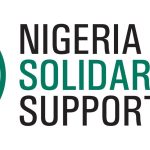By Dr George Ogunjimi, Esq.
New public order powers to prevent individuals causing repeated serious disruption must come into force in Nigeria in view of the large scale planning of disruptive and violent protests by certain elements in the society as the government must be proactive with its plan to protect the public from criminality at protests.
Serious Disruption Prevention Orders will empower the police and other security services to intervene before individuals cause serious disruption, damages to both public and private property. They must identify those who have previously committed protest-related offences or ignored court-imposed restrictions, if there are any and if not, the courts must be encouraged to impose restrictions on serious offenders.
The orders can impose a range of restraints on an individual, including preventing them from being in a particular place or area, participating in disruptive activities and being with protest groups at given times. They can also stop individuals from using the internet to encourage protest-related offences.
These orders can be imposed on those who have, on at least committed protest-related offences, for example locking-on, or breached the conditions of an injunction. The specific restrictions contained within each order will be decided by the court and must last up to 3 years. They can also be renewed if the person remains a threat.
Under public order legislation, serious disruption may occur when protest activity prevents or hinders day to day activities or construction or maintenance works, causes delays to deliveries of time-sensitive products or disrupts access to essential goods and services in a way which is more than minor and needs to be addressed for the greater benefit of the public. This must be seen as a public interest offence.
The public has a democratic right to protest and this government must always uphold that.
However, past events have shown certain individuals are just dedicated to wreaking havoc and causing severe disruption to the everyday lives of the public.
This is why the government must introduce these new powers to ensure that anyone who ignores warnings from our law enforcement cannot continue to cause turmoil unpunished or restrained before hand.
This string of measures will ensure that people can exercise their democratic right to protest while ensuring the public can go about their daily lives safely and without serious disruption.
Let the Federal Government rush these laws through the Parliament without further delay.
Ogunjimi is of Juris Republic, an independent law firm based in Lagos with a presence in the United Kingdom
























Leave a comment